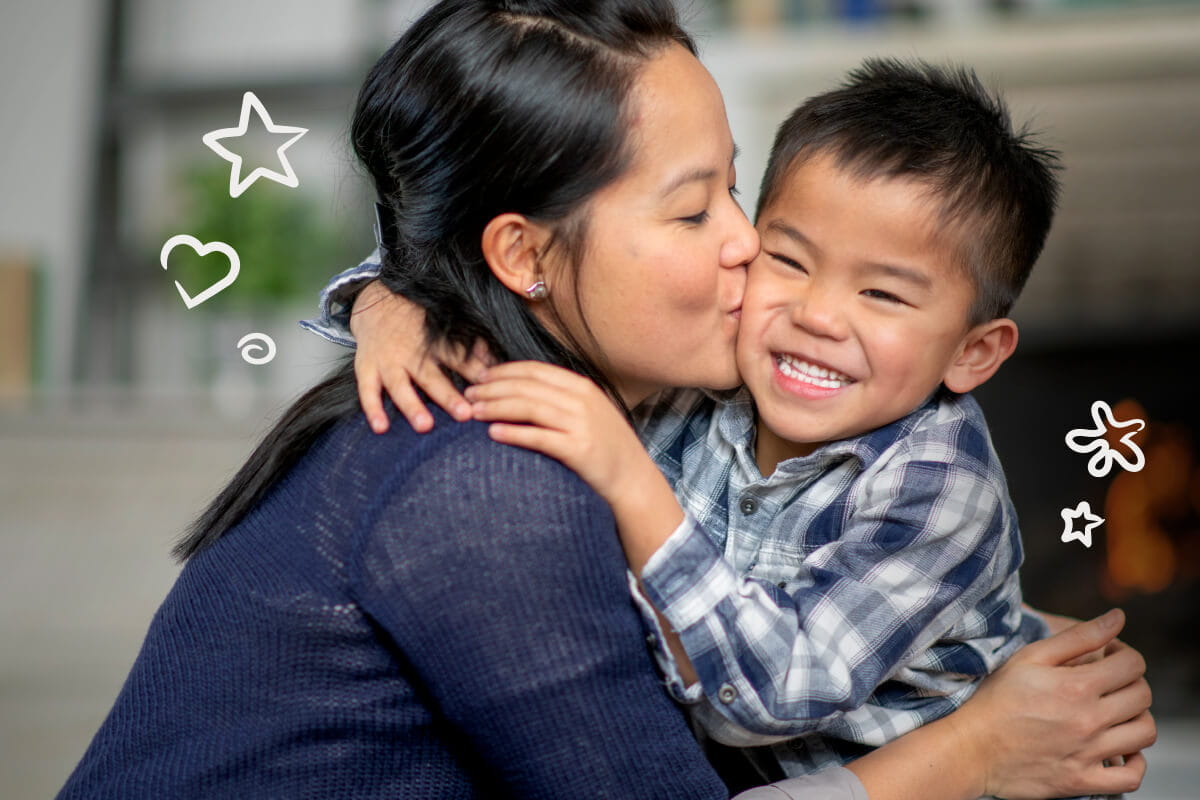6 Tips for Building Resilience in Children

As families gear up to begin an atypical school year, the way our children learn—and connect—will be different. Now more than ever, our kids need resilience to bounce back from challenging times and thrive in this new normal.
The good news is, there are skills you can practice as a family that will help your child become more resilient in the face of adversity. Resilience is a critical attribute for kids to develop because it boosts their social, emotional, and academic success and helps them rebound from challenging circumstances.
You can build resilience in your child—and bolster it within yourself—by focusing on and modeling three key skills: optimism, creativity, and empathy.
 Optimism
Optimism
Believe it or not, optimism isn’t just a mindset, it’s a skill fueled by grit and determination! With a little modeling from trusted grown-ups, and a lot of practice, kids can learn to approach life through a hopeful lens.
Adults can ...
- Save the doomsday talk for kid-free moments of venting with other grown-ups. Set an optimistic example for kids by stating positive thinking and language out loud even when life is challenging.
- Start a daily gratitude practice as a family to help everyone focus on finding silver linings in any circumstance. Start like this: “Tell me three good things about your day.”
Children can …
- Practice positive language that keeps their chins up when setbacks arise. A simple “Oh well, maybe next time!” helps children learn that when life gets them down, they can bounce back up and try again!
- Use positive vocabulary and statements to replace negative thoughts. If you hear your child say things like "Nobody likes me," the first thing you can do is empathize with them and show that you’re listening. Then, help them understand that this is a thought (or feeling), not a fact! Help them reframe this thought to a fact like this: "It's hard making friends at the beginning of the year, but I've made friends before—it might just take a little time.”

 Creativity
Creativity
Creativity isn’t an attribute you’re born with–it’s a skill you can cultivate with practice! Show your child that there are no limits to their imagination and help them believe their original ideas are worthy!
Adults can ...
- Model the power of wondering. By asking “I wonder … ” questions with your children, you can think creatively together to come up with new ideas and solutions.
- Get creative with code words or signals (like spies or baseball coaches!) to communicate with your kids when one of you is on a conference call for work or in an online classroom for school.
Children can …
- Mix things up! Let your kids come up with ideas for how to structure their school day—their way. Maybe they rearrange their schedules or routine, plan fun brain breaks, or add in movement moments of their choice.
- Practice taking risks and trying new things like making their own lunch or rearranging their room. Stepping outside of their comfort zones from time to time will help them learn new ways of doing things, uncover new skills they didn’t know they had, and build confidence in their ideas and abilities!

 Empathy
Empathy
It’s hard to practice a skill like empathy if you’ve never felt it for yourself. The best way to build this skill in your child is to model it for them. When you express empathy for your child, it gives them the language to practice looking at the world (or a situation) through someone else’s lens.
Adults can …
- Show empathy by expressing care for the feelings and experiences of others, and processing aloud what it must feel like to walk in someone else’s shoes.
- Connect with children before correcting or criticizing behavior. By taking the time to acknowledge children’s feelings, hearing their point of view, and offering a hug and soft place to land, we can show our children that mistakes are repairable. Even when things are hard, we can always lead with love and respect one another.
Children can ...
- Practice recognizing and labeling their own emotions, and the emotions of others. This type of emotional fluency helps children connect their feelings to those of others, which is an essential part of developing empathy.
- Resolve disagreements with siblings or parents. Ask your child to listen to the other person’s perspective and repeat back what they’ve heard before sharing their own perspective. Exercising their listening muscles in situations like this helps children appreciate how other people see things differently than they do. And, it’s a great way to illustrate how you don’t always know how you make others feel—regardless of your intentions.
Adding these three key skills to your child’s toolkit is a lifelong investment in helping them navigate change and uncertainty in any environment!
Looking for home design inspiration? Visit IKEA for children’s furniture, toys, and more!

KinderCare is here for you. Check out our full-time and part-time programs for babies through pre-K to find child care that fits your family.






